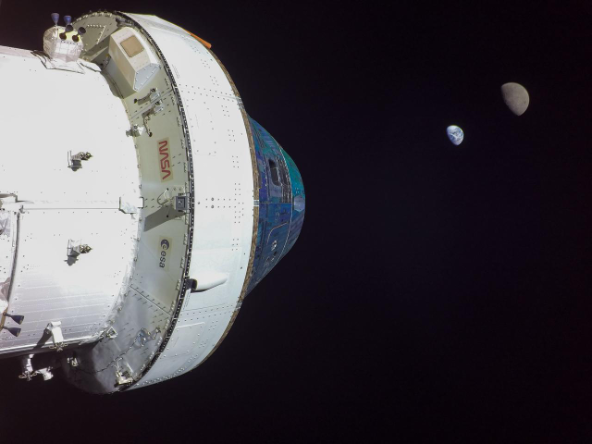Join NASA in Tracking the Artemis II Mission to the Moon
NASA is inviting volunteers to assist in monitoring the Artemis II Orion spacecraft as it embarks on its journey to the Moon and back to Earth.
About the Artemis II Mission
Scheduled for no later than April 2026, the Artemis II mission will launch NASA’s SLS (Space Launch System) rocket and Orion spacecraft, carrying astronauts Reid Wiseman, Victor Glover, Christina Koch, and CSA astronaut Jeremy Hansen. This approximately 10-day mission will orbit the Moon, marking a significant step in human space exploration.
Communication and Tracking Networks
Throughout the mission, NASA will utilize its Near Space Network and Deep Space Network for essential communication and tracking. As NASA shifts towards a more commercial approach, understanding the industry’s tracking capabilities is becoming increasingly important.
Building on Past Success
This initiative follows a previous call for volunteers during the Artemis I mission. In 2022, ten volunteers successfully tracked the uncrewed Orion spacecraft on its extensive journey beyond the Moon and back.
Who Can Participate?
Participants in the Artemis I mission included international space agencies, academic institutions, commercial entities, nonprofits, and private individuals. They worked to capture Orion’s signal and used ground antennas to track and analyze changes in the radio waves it emitted.
Kevin Coggins
Deputy Associate Administrator for SCaN
Expanding Aerospace Collaboration
“By extending this opportunity to the wider aerospace community, we can identify tracking capabilities beyond government resources,” stated Kevin Coggins, NASA’s deputy associate administrator for SCaN. “This information will guide our transition to a commercial-first strategy, enhancing the infrastructure necessary for Artemis missions and our broader Moon to Mars goals.”
How to Get Involved
Interested parties should submit their responses by 5 p.m. EDT on Monday, Oct. 27.
The Role of NASA’s SCaN Program
The SCaN Program manages NASA’s space communications and navigation systems. Over 100 missions, both NASA and non-NASA, depend on SCaN’s Near Space Network and Deep Space Network to support astronauts on the International Space Station, facilitate lunar exploration, monitor Earth’s weather, and explore the solar system and beyond.
Advancing Human Space Exploration
Artemis II will validate the systems and hardware essential for human deep space exploration. As the first crewed flight in NASA’s Artemis campaign, it represents a crucial step toward future U.S. missions on the Moon’s surface, paving the way for American astronauts to journey to Mars.
